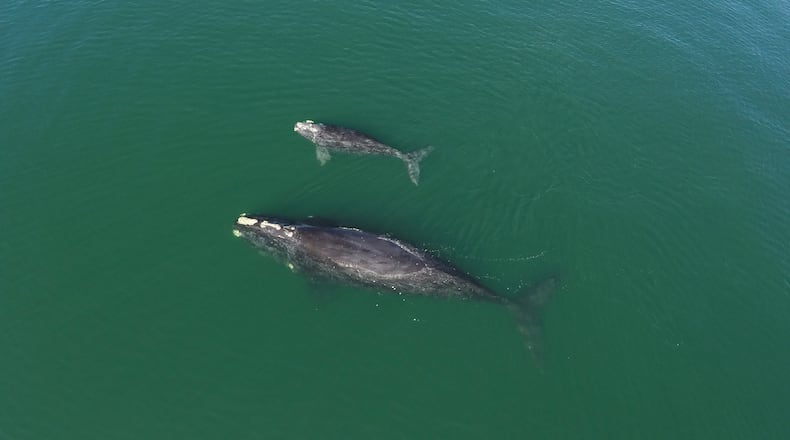Scientists announced a rare bit of good news Tuesday for North Atlantic right whales, the most critically endangered large whale species on the planet.
An annual population estimate found the whales numbers increased slightly last year to 372, up from 358 in 2020, according to the North Atlantic Right Whale Consortium.
The consortium, a collaboration among scientists, government agencies and the shipping and fishing industries, celebrated the news but warned the whale remains critically endangered as a result of human activity. Boat strikes and entanglements with fishing gear are leading causes of death among the whales, which breed off the coast of the southeastern United States in winter.
“To see the population estimate increasing gives us hope that what felt like a free fall over the past decade may be behind us,” Heather Pettis, a research scientist and chair of the consortium, said in a statement.
“While we still have a great deal of work to do to ensure that this species not only recovers but thrives, it feels really good to be able to share a little bit of positive news,” she added.
The estimate was the product of a collaboration between the New England Aquarium’s Anderson Cabot Center for Ocean Life and the U.S. National Oceanic and Atmospheric Administration, and includes a margin of error of about 12.
While the population numbers appeared positive for 2023, this year at least nine whales have died, the highest mortality count since 2019, with several months left to go. The consortium said those deaths could lower the population count for next year.
Advocates have been pushing NOAA to finalize new speed limits for some types of boats they say would help prevent death and injury to the rare animals.
Gib Brogan, campaign director at the conservation group Oceana, said in a statement the pending speed limits could have saved some of the animals that died recently, but the plan is “gathering dust” some two years after its proposal.
“President (Joe) Biden must approve and implement the updated vessel speed rule soon, before we see moms and calves on our shores this calving season instead of in our waters,” Brogan said.
Note of disclosure
This coverage is supported by a partnership with Green South Foundation and Journalism Funding Partners. You can learn more and support our climate reporting by donating at ajc.com/donate/climate.
About the Author
Keep Reading
The Latest
Featured



